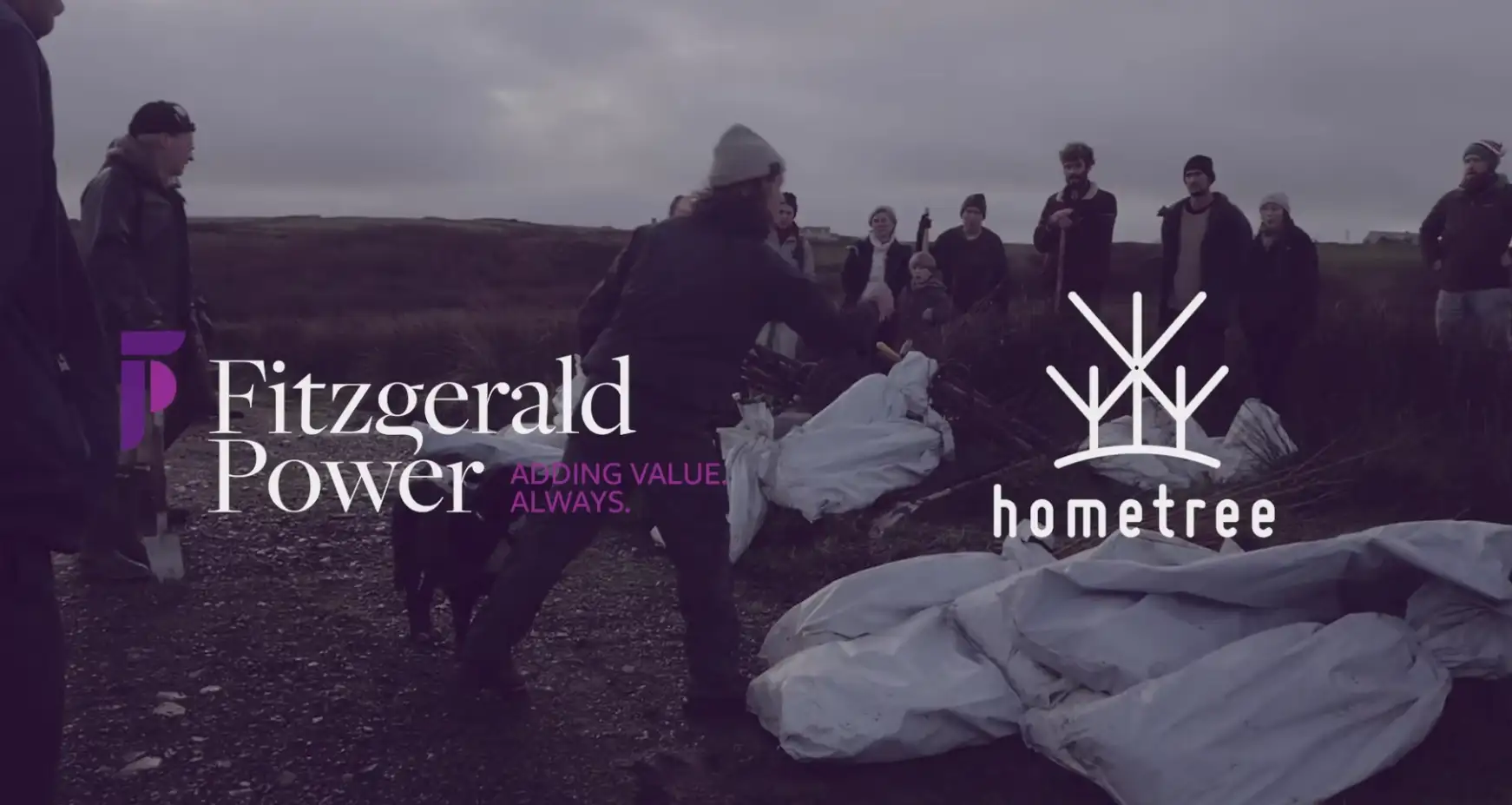In a month where we wondered why no one yet has put their hand up for the presidency (apart from a certain MMA fighter, of course), much happened around the world. Here are the best bits and what we’ve learned from them.
1. Economic peaks and troughs.
Ireland’s GDP jumped a remarkable 9.7% quarter-on-quarter in the first three months of this year due to a surge in pharma exports to the U.S. ahead of “Liberation Day” tariffs. With Ireland’s large multinational sector often distorting GDP, officials prefer to use modified domestic demand (MDD) to gauge the strength of the economy, which was up a modest 0.8% compared with the previous three months, according to the Central Statistics Office. This, anyone will tell you, highlights the Irish economy’s reliance on multinationals.
More than a dozen of the world’s biggest pharma companies have plants in Ireland, where many make medicines or active ingredients for the U.S. market and avail themselves of Ireland’s low corporate tax rate. (Fun fact: almost all of the world’s Botox and Viagra are made in Ireland. For whatever Liberation Day means to you.)
2. Budget watchdog forecasts fresh corporation tax surge.
Ireland could be on the brink of another surge in corporation tax, according to the Irish Fiscal Advisory Council (IFAC). But how come? A six-fold jump in corporate tax revenue since 2014, as well as €11 billion of Apple back taxes, makes Ireland’s public finances Europe’s healthiest.
As per Reuters, IFAC is saying a number of factors contribute to this. Including non-implemented OECD-led reforms, a number of corporate taxpayers not being impacted by US tariffs and a 154% year-on-year jump in Irish pharmaceutical exports, with US drugmakers with Irish plants reportedly stocking up ahead of tariffs. Finally, the capital allowances some firms used when they moved intellectual property assets to Ireland could potentially add “billions” of euros in the coming years, IFAC chair Seamus Coffey added. “We don’t see it, but it doesn’t mean it’s not there. That’s down to the profitability and decisions these companies make.”
3. When Irish fintech is smiling.
It’s all comin’ up Irish fintech, as funding reached around €238 million in 2024, marking a 291% increase and positioning Ireland as Europe’s standout fintech hub. This proves especially impressive in a year when fintech funding hit a seven-year global low. According to KPMG’s Pulse of Fintech report, global investment in the sector fell from $119.8 billion in 2023 to $95.6 billion in 2024. Yet, as per fintechweekly.com, Ireland’s fintech firms raised nearly $238 million across 25 deals – a 291% increase from the previous year.
Ireland’s numbers matter as they mark a significant vote of confidence in the country’s evolving financial technology sector. And while part of the 2024 spike can be attributed to recovery from a soft 2023, analysts suggest that the story tells more of a story about how Irish fintech companies are maturing.
4. Central Bank cautions about U.S. trade policy.
The Central Bank has warned Ireland’s economists that uncertainty could be afoot as a result of changing U.S. policy that could see its economy grow much more slowly than previously expected. As per the Wall Street Journal, the Central Bank’s quarterly outlook cautions that Trump’s tariffs would have a significant impact on economic growth over the coming years. The hope is, however, that Ireland won’t be pushed into a lengthy contraction.
“Ireland is experiencing, and can be expected to further experience, the fallout from changing geo-economic relationships and priorities,” said Robert Kelly, director of economics at the Central Bank of Ireland.
5. Inflation & Employment.
Just last week, the CSO published the flash estimates of inflation from the EU Harmonised Index of Consumer Prices (HICP) for Ireland for June 2025. As per the data, prices for consumer goods and services in Ireland are estimated to have increased by 1.6% in the past year, with energy prices estimated to have decreased by 0.2% in the month, and fallen by 1.8% since June 2024.
As you may have already been suspecting, food prices are estimated to have grown by 0.3% in the last month and increased by 4.3% in the last 12 months. Joining this is transport; costs rose by 1.2% in the month, despite decreasing by 2.0% in the 12 months to June 2025.
Monthly unemployment remains positive: 4.0% for males, unchanged from the revised rate in May 2025, and down from the rate of 4.4% recorded in June 2024. And 4.0% for females, down from a rate of 4.1% in May 2025, and from a rate of 4.4% in June 2024. Overall, the monthly unemployment rate for people aged 25-74 years was 3.0%, unchanged from the revised rate in May 2025.
6. War in the Middle East shows no signs of slowing.
Despite near-constant talk of a ceasefire, a near-constant stream of fighting still seems to be taking place. This month, a 12-day war between Israel and Iran saw U.S. airstrikes on Iranian nuclear sites and Iranian missile retaliation, including a strike on a U.S. base in Qatar, raising fears of wider regional conflict. In the first few days of July, Iran’s Foreign Minister Abbas Araghchi warned that if Israel was not held accountable for its attack on Iran, “the whole region and beyond will suffer”.
“The US-Israeli attacks on our nuclear facilities were in stark violation of NPT [the Nuclear Non-Proliferation Treaty] and the UNSC Resolution 2231 that has endorsed Iran’s peaceful nuclear programme in 2015 by consensus,” Araghchi said in a speech at the BRICS summit in Brazil, cited by state-run Press TV. “The US’s subsequent involvement in this aggression by targeting Iran’s peaceful nuclear installations has left no doubt as to the full complicity of the American government in Israel’s war of aggression against Iran.”
7. What’s rare is wonderful.
It would take a rare material to strike a rare deal between the U.S and China, who resolved issues surrounding shipments of rare earth minerals and magnets to the U.S, according to Treasury Secretary Scott Bessent. The move, according to Reuters, ironed out a dispute that stalled a deal reached in May, following, you guessed it, tariff-related backlash.
China retaliated earlier this year by suspending exports of a wide range of critical minerals and magnets, upending supply chains central to a number of industries around the world. However, during trade talks in May in Geneva, Beijing committed to removing the measures to ensure “magnets flow”. The details of the new deal have not yet been shared, but an agreement has been confirmed by Trump. Watch this space.
8. Ireland records its hottest day since 2022.
In a surprise to absolutely no one, this month saw Ireland’s hottest day since 2022. On June 20, Roscommon reached an exceptional 29.6 °C – its hottest day in nearly three years – ushering in a brief mini-heatwave. Values of between 25 °C and 29 °C were recorded in most inland areas of Ireland, while sea breezes kept temperatures down along the south and east coasts. This month, more hot weather is expected amidst showers of rain.
9. M&A’s.
Buckle up…
Moore Ireland merges with HSOC
Cork-based Moore Ireland has completed its second major consolidation this year by merging with Dublin’s HSOC firm, expanding its team from 240 to over 270 employees and strengthening its mid-tier accounting presence.
IT.ie acquires Abacus Systems
Irish managed IT services company IT.ie has announced that it has acquired Abacus Systems, a Dublin-based managed IT service provider, in a seven-figure deal. Following the acquisition, the company is forecasting revenues to exceed its previous target of €8m, reaching €10m by year-end 2025. Its workforce will grow to a team of more than 50, while its customer base will increase by 50% to more than 500 clients.
Cormeo acquires majority stake in medicines.ie
The Irish Pharmaceutical Healthcare Association and Cormeo, the newly established German-based Pharma Tech holding company under Bertelsmann, announces its Venture in the mutual operation of medicines.ie, a trusted information provider of accurate and reliable medicines information. Tobias Beer, COO of Cormeo, explains, “This strategic move allows us to enhance our capabilities and broaden our international reach, supporting our vision of a smart information lifecycle for life sciences and allowing seamless access to vital medicines information for all stakeholders.”
SparksWealth acquires Gallagher Insurances
Irish financial planning and wealth management firm SparksWealth has announced the acquisition of the life and pensions division of Tom Gallagher Insurance Ltd T/A Gallagher Insurances. Gallagher Insurances will continue to serve its general insurance clients independently.
Inspired Corporate Advisory acquired by Ryan
A tax advisory firm jointly led by Tyrone’s two-time GAA All-Star winner Colm Cavanagh has been bought by the Dallas-based global tax giant Ryan. The acquisition of Inspired Corporate Advisory, which has offices in Holywood, Dungiven and London, marks Ryan’s entry into the Northern Ireland market. Inspired describes itself as Northern Ireland’s only dedicated tax firm, specialising in research and development, capital allowances, and patent box incentives.
In summary:
Well, that was a mouthful. A lot has taken place in the four weeks since we spoke to you last, and much of it can be reflected in the weather; extremely hot and then a bit miserable. But, isn’t that life? It’s good until it’s not, and that’s just the way it goes sometimes. June gave us a lot to work with in terms of gossip and chaos. Take the Tattle Life scandal, for example. The anonymous platform where people commented about their favourite influencers without fear of repercussion. When the owner – a man named Sebastian Bond, who used a woman’s name to post his bugbears – was found out by way of a court case, all he wanted was privacy. Go figure. Or take Bezos and how new bride Lauren Sánchez, who took over Venice for their intimate nuptials along with 200 of their closest, private jet-owning friends. Ushering in a new sense of IDGAF energy, the newlyweds have brought with them an energy of “just getting started,” leaving the rest of us a little hot, bothered, and wondering what the right level of cleavage is for a formal two-day event.
Meanwhile, Wimbledon rages on, Trump is still on the golf course, and a ceasefire is still nowhere to be found. In fact, we’re further away now than when we started. Mercifully, we have the Lions, Saipan the movie and the growing fear of who will follow Miggedly to distract us. Could it be Bertie? Or Joe Duffy? Or God forbid, worse. For anyone interested in the ceremonial gig, I believe they’re taking entries via DMs to Cork GAA’s Instagram. Just message “gowl” and we’re pretty sure you’re in the pot.
Thanks for reading, and see you next month!
Our team is dedicated to providing you and your business with the absolute best business advice out there. We approach each and every case from a fresh perspective, working with you to find tailored solutions that leave your business feeling stronger than ever. With our expert analysis, we translate figures into a language you can understand. Using timely, reliable advice, our experienced team of experts devise sophisticated plans to encourage cost efficiency and growth. To find out more, contact our team at Fitzgerald Power today.



